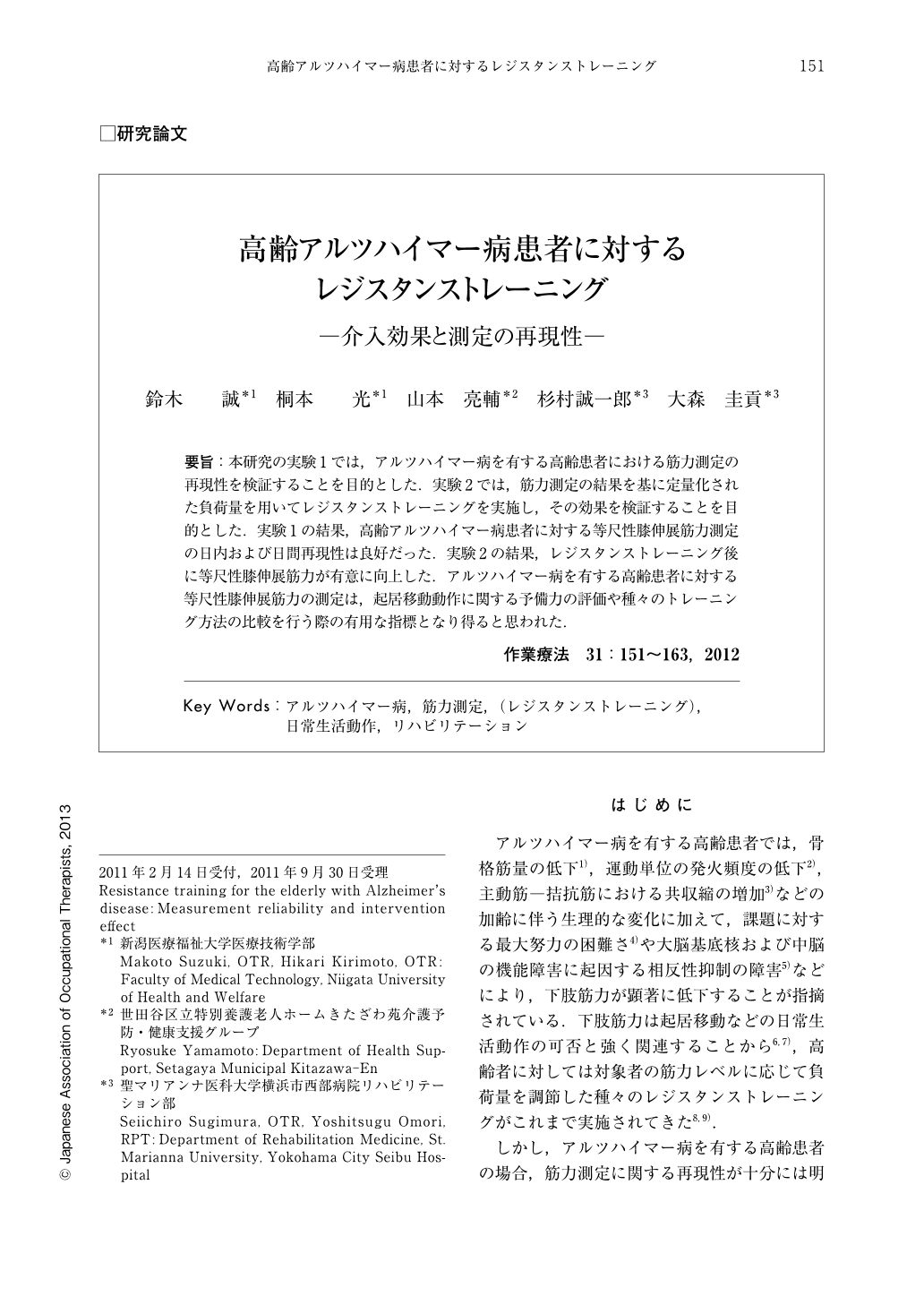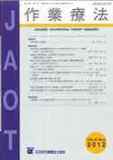Japanese
English
- 販売していません
- Abstract 文献概要
- 1ページ目 Look Inside
- 参考文献 Reference
要旨:本研究の実験1では,アルツハイマー病を有する高齢患者における筋力測定の再現性を検証することを目的とした.実験2では,筋力測定の結果を基に定量化された負荷量を用いてレジスタンストレーニングを実施し,その効果を検証することを目的とした.実験1の結果,高齢アルツハイマー病患者に対する等尺性膝伸展筋力測定の日内および日間再現性は良好だった.実験2の結果,レジスタンストレーニング後に等尺性膝伸展筋力が有意に向上した.アルツハイマー病を有する高齢患者に対する等尺性膝伸展筋力の測定は,起居移動動作に関する予備力の評価や種々のトレーニング方法の比較を行う際の有用な指標となり得ると思われた.
This study was composed of two rounds of data collections. Five elderly patients with Alzheimer's disease and 5 elderly healthy controls enrolled in the first round to examine the test-retest reliability of measurements of knee extension strength, and 10 elderly patients with Alzheimer's disease participated in the second round to evaluate the potential of resistance training to improve strength and lower extremity functions among older adults with Alzheimer's disease. Reliability for maximum voluntary contraction was assessed with retest intervals of 3 minutes and 1 week. The intraclass correlation coefficients of patients with Alzheimer's disease were 0.951-0.998, and that of the healthy controls were 0.832-0.969. The resistance training group did 3 sets (10 repetitions per set) at 65% of their 1-repetition maximum, 3 days per week for 8weeks. Knee extension strength improved significantly in the training group, whereas lower extremity functions did not improve. The study shows that the strength measurement was reliable, and resistance training was an effective intervention for improving muscle strength in older patients with Alzheimer's disease.

Copyright © 2012, Japanese Association of Occupational Therapists. All rights reserved.


